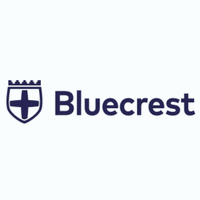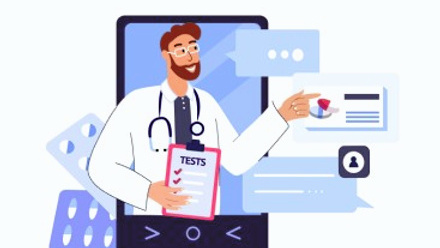Workplace wellbeing is changing - here's what's next
Checking your own physical and mental wellbeing does not happen often enough.
Employees tend to prioritise performance over prevention.
For employers, however, there’s been a tendency to intervene when problems arise, rather than act early. But this mindset is changing. But what comes next?
According to the Indeed Global Work Wellbeing Report, containing insights from Oxford University, companies leading on wellbeing outperform their peers across innovation, engagement and profitability.
From generic support to insight-driven health
From the universal to individual, health and wellbeing support is obviously shifting to meet these demands.
Employees now expect tailored, data-informed support; the kind that reflects their personal health profile and prompts meaningful behaviour change or action.
This is where we will see health intelligence playing a bigger role.
The health assessments of today and tomorrow are going beyond a basic check-up.
They offer people real insight into their risk areas, the good and could-be-betters, and where small changes could make a big difference.
This builds autonomy. It also encourages individuals to purposefully drive better health outcomes over time.
And it’s needed.
Data shows that 36% of working-age adults in the UK live with at least one long-term health condition, up from 31% in 2019 (ONS).
Against that backdrop, early intervention and informed action are becoming business-critical.
Wellbeing as social capital, our greatest asset
Now, forward-looking strategies prioritise prevention by design – not just through campaigns, but through practical, everyday tools that support earlier engagement and easier access to care.
We’re seeing this in the rise of flexible, in-person health checks that tailor to busy schedules, 24/7 digital platforms, and immediate access to clinical insight, breaking down the jargonistic terms that can cloud efforts to improve wellbeing.
Such examples of support are becoming the building blocks of everyday care.
We know that when health services are convenient, trusted and cost-effective, employees use them.
Bluecrest’s 2024 survey reflects this, revealing that nearly three quarters of working people would potentially go for a confidential health assessment if it was available through their workplace – while almost half of individuals were a ‘definite yes’.
This is important as when services become accessible and impactful, employers benefit, with healthier teams, lower absence and more sustainable performance.
For example, the Global Wellness Institute’s 2025 Workplace Wellbeing Trends report found that companies prioritising wellbeing see up to 20% higher productivity and reduced absenteeism.
When this is embedded into their company culture, organisations see 10% higher retention rates, building loyalty and attracting talent.
Joining up the dots within strategies
What we can also expect is evidence that successful wellbeing strategies will no longer treat health as a series of separate concerns.
Physical, mental, and financial wellbeing intersect – and the solutions must too.
Health insights will increasingly become the starting point for this joined-up support.
A personalised assessment may highlight a cardiovascular risk, such as elevated blood pressure or high cholesterol, which leads to GP referral, which connects to everything from workplace support to fitness guidance, dietary recommendations, and even mental health coaching.
This is where the concept of health intelligence matures: not just helping individuals act, but equipping employers with aggregated insights they need to make data-led decisions, target interventions, and monitor return on investment over time.
Bluecrest’s health assessments, for instance, are designed to surface early indicators of preventable conditions through accessible, affordable and personalised screening, helping to inform both short-term decision-making and long-term behaviour change.
Weaving wellbeing throughout the workplace
But even the most insight-rich strategies rely on people to bring them to life, and that often starts within teams.
Often overlooked, line managers are positioned between policy and people; they are often the first to spot when someone’s struggling, but may lack the training or confidence to act.
So as strategies become more insight-led, embedding basic health literacy and wellbeing awareness into management development will be vital.
As this shift gathers pace, we might expect health intelligence to become as familiar in the workplace as performance reviews or development plans.
Whether it’s a dashboard tracking health trends across departments, or a manager checking in based on flagged wellbeing indicators, personalised health insight will increasingly weave itself into day-to-day working life.
The organisations that normalise these interactions – without stigma or overwhelm – will be best placed to foster a healthier, more empowered workforce.
Ultimately, wellbeing isn't a standalone initiative. It’s a strategic lens through which we view performance, culture and care.
The next generation of workplace health won’t just support people when they need help – it will enable them to stay well, feel well and thrive.
Supplied by REBA Associate Member, Bluecrest Wellness
Bluecrest Wellness offers high-quality health screenings.








